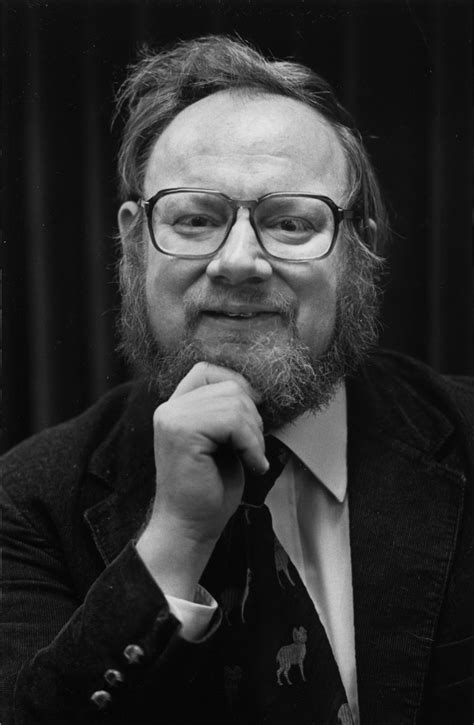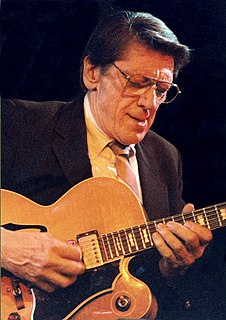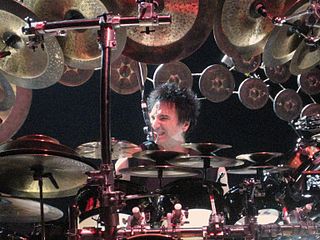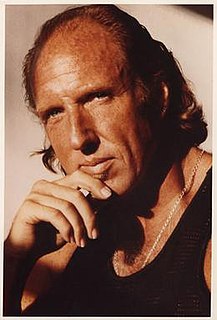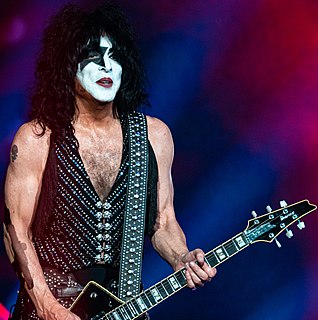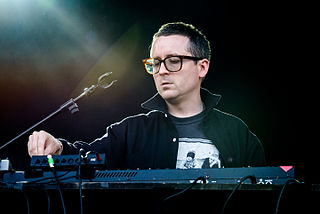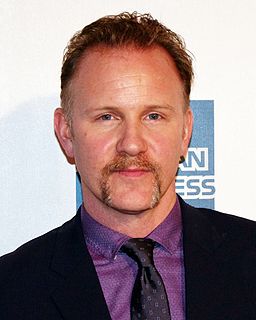A Quote by John Eaton
In other words, I think that if an audience listens to something as an experience of how in tune it is or something of that kind, that the whole point is somehow being missed, and the music has failed.
Related Quotes
Well, one is inspired by the whole of life, one's own and somebody else's. You know how sometimes you hear great music, and music is completely untranslatable into words, into any words. A certain tension that is born when one listens to music could aid you in expressing something absolutely different.
Something is missing: that's as close as I can come to naming the sensation, an awareness of missed or thwarted connections, or of a great hollowness left where something lovely and solid used to be. ...There is something fundamentally insatiable about being human, as though we come into the world with a kind of built-in tension between the experience of being hungry, which is a condition of striving and yearning, and the experience of being fed, which may offer temporary satisfaction but always gives way to new strivings, new yearnings.
I think when you're younger, as an actor you have much more of a notion that you are doing something to the audience. But with experience, I think you begin to worry less about what the audience's experience is and concentrate on working with the other actors, and that tends to let the audience do more work.
Every purchasing decision involves a trade-off between what I call fidelity and convenience. Fidelity is the total experience of something - how great the experience is. Convenience is how easy it is to get something. A live concert is a high fidelity way to experience music; an MP3 file is a high convenience way to experience music. Depending on the situation, one or the other is probably pretty appealing. What's not appealing is something that offers neither.
If you think someone's trying too hard, that's the worst thing they can do. To me, it's just desperate, never funny and never witty. It's kind of really old hat because just being shocking isn't enough. It has to change how you think about something. It has to startle you. It has to make you look at something and reconsider whether you're right. That's the whole point.
What I think I do is to relate any new material to how similar it is to something else. The closest that I can come up with something that's already in my experience, the easier it becomes. All I have to do then is remember where it differs, like relating a chord sequence that comes from some other tune, or several different tunes, or maybe parts of them and then work it from there.
I really think kids should understand that music is like learning the alphabet. You put small letters together to make words, and then you use these words to create a story, but with music. And they really need to know how to mix and match those letters and how to come up with something that is really interesting, or speak in metaphors as poets do to show us something maybe we didn't think about.
Now, we know this is what [H.P.] Lovecraft was into. Because he kept talking about how he wasn't interested in religion. In a heaven state there is no religion, meaning that you're seeing the whole thing ... I mean, to worship something means that it's something beyond you, right? In other words, it's not being revealed to you.
When we came out, the kind of music that was popular was Nirvana, Soundgarden and Alice In Chains, all that stuff. That was when we released our second album, 'Images And Words', and it was something people werent used to hearing maybe, and it sort of rose above all that somehow, being progressive, or whatever.
I don't know," I said. "Maybe you're right, and all that stuff I think I missed is overrated. Why should I even bother? What's the point really?" He thought for a moment. "Who says there has to be a point?" he asked. "Or a reason. Maybe it's just something you have to do." He moved down to start bagging while I just stood there, letting this sink in. Just something you have to do. No excuse or rationale necessary. I kind of like that.
Music critics are, for the most part, bitter people who are intent at dragging people down for being successful at what they want to do, which is probably music. The oddity of being a critic is: You don't get a diploma, you just decide you're a critic. If someone listens to your opinion rather than their own, it's their mistake. Any critic's top 10, any year, it's something controversial or something that will make them look hipper-than-thou. The whole critic game, we've never played.
I'm quite interested in what words can be, if it's very few words, and it's a kind of club track but it has a sort of uplifting or spiritual kind of feeling to it. Somehow, something bigger than just the words on the page happens when you hear it all together. Sometimes I notice when I'm DJing, I put on a lot of tracks that feature vocals. I guess for me, it's just from growing up loving songs, so maybe I'm geared slightly more towards dance music that features a song element.
